 | TODAY IN SCIENCE HISTORY
NEWSLETTER - 11 JUNE |
 On 11 Jun 1910, Jacques Yves Cousteau was born, famous for the extensive ocean research he undertook from his vessel, the Calypso. Today's Science Store pick is: Jacques Cousteau's Calypso, by Jacques Yves Cousteau. With many color pictures from all over the world, it is an arm chair adventurer's dream reference. It gives many details of the Calypso, and the many changes in her configuration as changed through the years of voyages. Yet, those interested in oceanography and marine exploration will not be disappointed with the many abundant details of her numerous adventures in distant locales. Available Used from $16.94 (as of time of writing). On 11 Jun 1910, Jacques Yves Cousteau was born, famous for the extensive ocean research he undertook from his vessel, the Calypso. Today's Science Store pick is: Jacques Cousteau's Calypso, by Jacques Yves Cousteau. With many color pictures from all over the world, it is an arm chair adventurer's dream reference. It gives many details of the Calypso, and the many changes in her configuration as changed through the years of voyages. Yet, those interested in oceanography and marine exploration will not be disappointed with the many abundant details of her numerous adventures in distant locales. Available Used from $16.94 (as of time of writing).
Yesterday's pick: Naturalist, by Edward O. Wilson
For picks from earlier newsletters, see the Today in Science Science Store home page. | |
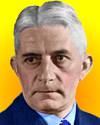 | "It would be interesting to inquire how many times essential advances in science have first been made possible by the fact that the boundaries of special disciplines were not respected… Trespassing is one of the most successful techniques in science." - Wolfgang K�hler, Russo-German-American psychologist (died 11 Jun 1967)  |
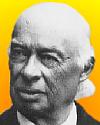 | "Knowledge and ability must be combined with ambition as well as with a sense of honesty and a severe conscience. Every analyst occasionally has doubts about the accuracy of his results, and also there are times when he knows his results to be incorrect. Sometimes a few drops of the solution were spilt, or some other slight mistake made. In these cases it requires a strong conscience to repeat the analysis and to make a rough estimate of the loss or apply a correction. Anyone not having sufficient will-power to do this is unsuited to analysis no matter how great his technical ability or knowledge. A chemist who would not take an oath guaranteeing the authenticity, as well as the accuracy of his work, should never publish his results, for if he were to do so, then the result would be detrimental not only to himself, but to the whole of science." - Carl Remigius Fresenius, German analytical chemist (died 11 Jun 1897)  |
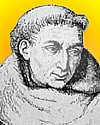 | "For there are two modes of acquiring knowledge, namely, by reasoning and experience. Reasoning draws a conclusion and makes us grant the conclusion, but does not make the conclusion certain, nor does it remove doubt so that the mind may rest on the intuition of truth, unless the mind discovers it by the path of experience; since many have the arguments relating to what can be known, but because they lack experience they neglect the arguments, and neither avoid what is harmful nor follow what is good. For if a man who has never seen fire should prove by adequate reasoning that fire burns and injures things and destroys them, his mind would not be satisfied thereby, nor would he avoid fire, until he placed his hand or some combustible substance in the fire, so that he might prove by experience that which reasoning taught. But when he has had actual experience of combustion his mind is made certain and rests in the full light of truth. Therefore reasoning does not suffice, but experience does." - Roger Bacon, English scholar (died 11 Jun 1292)  |
| Before you look at today's web page, see if you can answer some of these questions about the events that happened on this day. Some of the names are very familiar. Others will likely stump you. Tickle your curiosity with these questions, then check your answers on today's web page. |
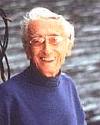 |  Born on 11 Jun 1910, Jacques Yves Cousteau, French naval officer, oceanographer, marine biologist and ocean explorer, is known for his extensive underseas investigations. He was co-inventor of the aqualung which made SCUBA diving possible (1943). He modified a WWII ship into the research vessel Calypso, in 1950. Born on 11 Jun 1910, Jacques Yves Cousteau, French naval officer, oceanographer, marine biologist and ocean explorer, is known for his extensive underseas investigations. He was co-inventor of the aqualung which made SCUBA diving possible (1943). He modified a WWII ship into the research vessel Calypso, in 1950.
 During the war, what was the function of the ship that became the Calypso? |
|  This British scientist, Newton by name, was born 11 Jun 1829. He was a professor at Cambridge University and was one of the foremost scientists of the day in his field, and he wrote a great deal on the subject. This British scientist, Newton by name, was born 11 Jun 1829. He was a professor at Cambridge University and was one of the foremost scientists of the day in his field, and he wrote a great deal on the subject.
 What science was his field? What science was his field? |
 |  Roger Bacon (died 11 Jun 1292) was an English scholar who was one of the first to propose mathematics and experimentation as appropriate methods of science. He studied mathematics, astronomy, optics, alchemy, and languages. Bacon was the first European give a detailed description of the process of making a certain product, much used for centuries. Roger Bacon (died 11 Jun 1292) was an English scholar who was one of the first to propose mathematics and experimentation as appropriate methods of science. He studied mathematics, astronomy, optics, alchemy, and languages. Bacon was the first European give a detailed description of the process of making a certain product, much used for centuries.  Can you name the invention? Can you name the invention? |
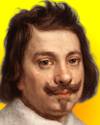 |  On 11 Jun 1644, Florentine scientist, Evangelista Torricelli described in a letter the invention of his "torricellian tube." On 11 Jun 1644, Florentine scientist, Evangelista Torricelli described in a letter the invention of his "torricellian tube."
 What is the familiar name of his invention? |
|  On 11 Jun 1975, Harvard professor Michael McElroy and other scientists concerned about atmospheric ozone depletion proclaimed their support for a certain ban, which the U.S. government implemented three years later. On 11 Jun 1975, Harvard professor Michael McElroy and other scientists concerned about atmospheric ozone depletion proclaimed their support for a certain ban, which the U.S. government implemented three years later.
 What was the banned product? |
When you have your answers ready to all the questions above, you'll find all the information to check them, and more, on the June 11 web page of Today in Science History. Or, try this link first for just the brief answers.
Fast answers for the previous newsletter for June 10: ants; four-stroke internal-combustion engine; Robert Brown; Andr�-Marie Amp�re; curved; 13 days; the decade including the year 1869.
|
 If you enjoy this newsletter, the website, or wish to offer encouragement or ideas, please send feedback by using your mail reader Reply button. If you enjoy this newsletter, the website, or wish to offer encouragement or ideas, please send feedback by using your mail reader Reply button. |
--
If you do not want to receive any more newsletters,
Unsubscribe To update your preferences and to unsubscribe visit
this link 






 Born on 11 Jun 1910, Jacques Yves Cousteau, French naval officer, oceanographer, marine biologist and ocean explorer, is known for his extensive underseas investigations. He was co-inventor of the aqualung which made SCUBA diving possible (1943). He modified a WWII ship into the research vessel Calypso, in 1950.
Born on 11 Jun 1910, Jacques Yves Cousteau, French naval officer, oceanographer, marine biologist and ocean explorer, is known for his extensive underseas investigations. He was co-inventor of the aqualung which made SCUBA diving possible (1943). He modified a WWII ship into the research vessel Calypso, in 1950. During the war, what was the function of the ship that became the Calypso?
During the war, what was the function of the ship that became the Calypso? This British scientist, Newton by name, was born 11 Jun 1829. He was a professor at Cambridge University and was one of the foremost scientists of the day in his field, and he wrote a great deal on the subject.
This British scientist, Newton by name, was born 11 Jun 1829. He was a professor at Cambridge University and was one of the foremost scientists of the day in his field, and he wrote a great deal on the subject.  What science was his field?
What science was his field?
 Roger Bacon (died 11 Jun 1292) was an English scholar who was one of the first to propose mathematics and experimentation as appropriate methods of science. He studied mathematics, astronomy, optics, alchemy, and languages. Bacon was the first European give a detailed description of the process of making a certain product, much used for centuries.
Roger Bacon (died 11 Jun 1292) was an English scholar who was one of the first to propose mathematics and experimentation as appropriate methods of science. He studied mathematics, astronomy, optics, alchemy, and languages. Bacon was the first European give a detailed description of the process of making a certain product, much used for centuries.  Can you name the invention?
Can you name the invention? 
 On 11 Jun 1644, Florentine scientist, Evangelista Torricelli described in a letter the invention of his "torricellian tube."
On 11 Jun 1644, Florentine scientist, Evangelista Torricelli described in a letter the invention of his "torricellian tube." What is the familiar name of his invention?
What is the familiar name of his invention? On 11 Jun 1975, Harvard professor Michael McElroy and other scientists concerned about atmospheric ozone depletion proclaimed their support for a certain ban, which the U.S. government implemented three years later.
On 11 Jun 1975, Harvard professor Michael McElroy and other scientists concerned about atmospheric ozone depletion proclaimed their support for a certain ban, which the U.S. government implemented three years later. What was the banned product?
What was the banned product? If you enjoy this newsletter, the website, or wish to offer encouragement or ideas, please send feedback by using your mail reader Reply button.
If you enjoy this newsletter, the website, or wish to offer encouragement or ideas, please send feedback by using your mail reader Reply button. 

Δεν υπάρχουν σχόλια:
Δημοσίευση σχολίου